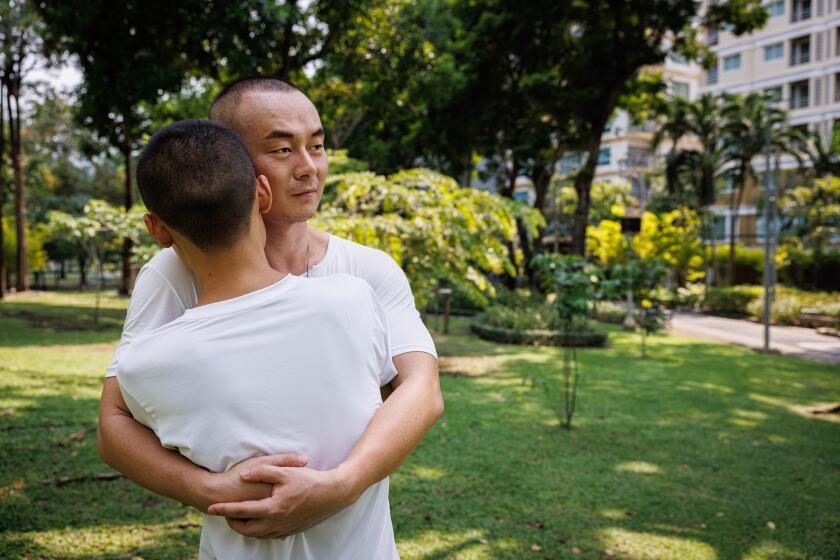
- Share via
BANGKOK — On the fifth floor of a large Bangkok mall, gay newlyweds milled about on a long rainbow carpet, posing for photographs while other couples still waiting to marry lined up to submit the required documents.
“Today is a milestone for the success of gender equality in Thailand,” declared Permsup Saiaung, who had come with her partner of nearly two decades.
The pair were among hundreds of couples to wed in a mass ceremony Thursday as Thailand’s same-sex marriage law took effect.
The Marriage Equality Act, the first law of its kind in Southeast Asia, redefines marriage as a partnership between two individuals of any gender and grants same-sex couples the legal rights of traditional marriage on issues such as inheritance, adoption and medical benefits.

“We are very happy today, because we have fought for marriage equality for so long,” said Saiaung, 54, who owns a coffee shop with her new wife, Puangphet Hengkham, 39.
The couple had never considered the benefits of marriage until Hengkham was injured in a motorbike accident eight years ago. Saiaung was unable to authorize emergency treatment and instead had to track down Hengkham’s elderly mother.
Supreme Court will take up a dispute over grade school textbooks that include LGBTQ+ themes, pitting religious rights against individual rights.
In 2019, the couple sued for the right to marry. The provincial and constitutional courts ruled against them.
Four years later, a bill to redefine marriage began working its way through the legislature to rewrite the civil code so that marriage is no longer between a “man and a woman” but between a “person and a spouse.” The bill was approved by the Senate in June and endorsed by the king in September.

Many couples attending the mass wedding said they wanted to be a part of history. For others, it was a necessary formality to ensure the legal rights of their long-term partners.
Jiraphat Multakorn, 42, started planning a wedding with Pornthipha Damkaew, 28, more than a year ago in the hope that the marriage equality bill would be voted through.
The two, who have been together for six years, hosted their own ceremony on Jan. 11, and made the marriage official Thursday morning.
As a legal spouse, Damkaew will be able to share the welfare benefits that Multakorn receives as a military officer, and they hope it will help them get a loan to buy a home together.
LGBTQ+ people have helped define America. Our contributions to the nation’s cultural identity are indelible. We cannot be erased.
“My partner has gone through a lot with me, standing with me as my mentor and my best friend,” Multakorn said. “It’s time that she should be my life partner too.”
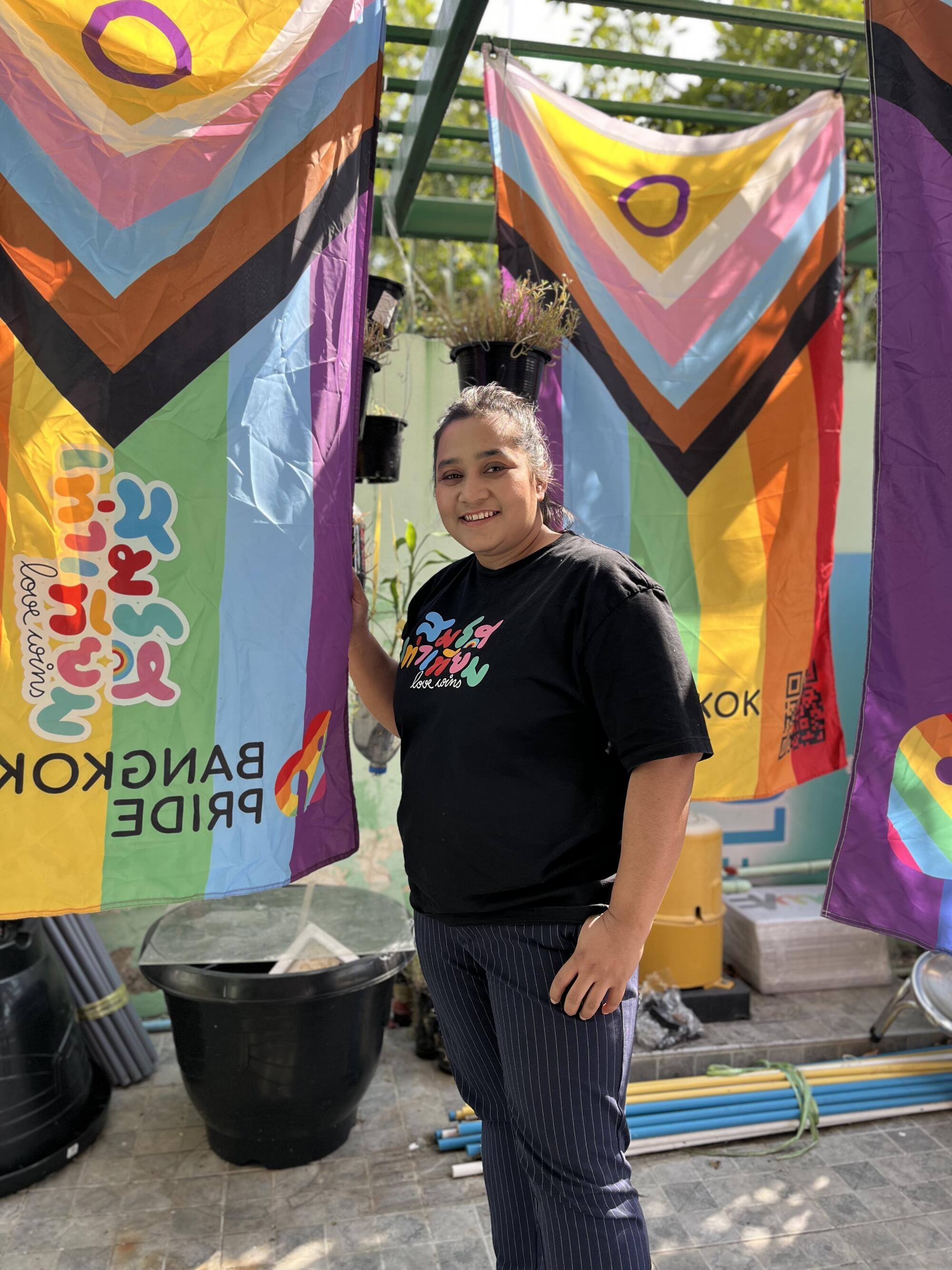
Thailand has long been known as a haven for LGBTQ+ communities, particularly in contrast with other Asian countries where homosexuality is still criminalized. It is only the third place in Asia to legalize same-sex marriage, behind Taiwan in 2019 and Nepal in 2023.
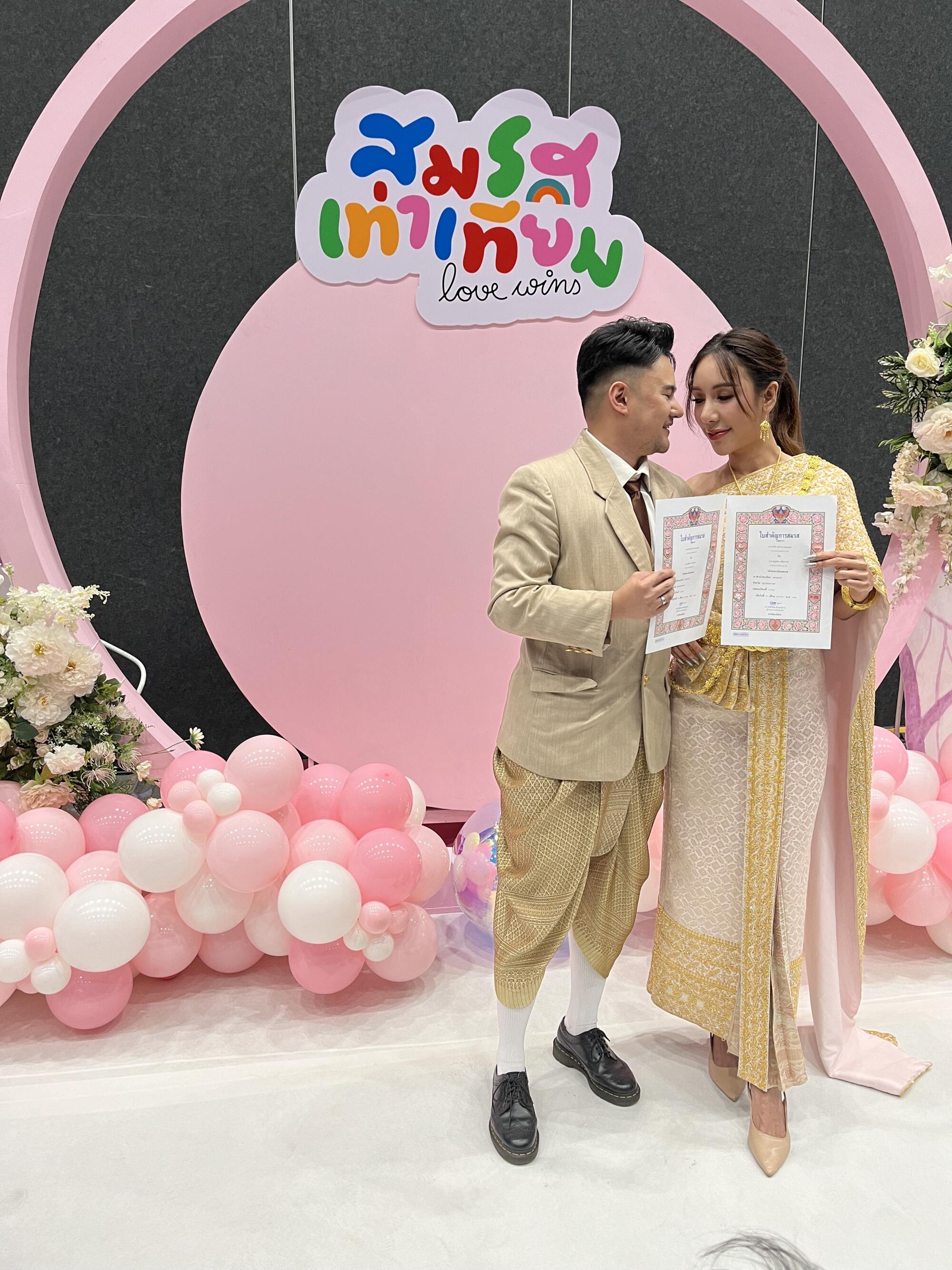
The queer scene in Bangkok is also a significant draw for LGBTQ+ tourists, who are becoming a greater priority for Thai authorities.
But activists for marriage equality said they faced opposition from conservative lawmakers.
Waaddao Chumaporn, a prominent advocate for gender rights and co-founder of Bangkok Pride, which helped organize Thursday’s mass wedding, said she hopes other laws can be amended to be more inclusive, such as using gender-neutral terms to define parents.
“The state recognizes us as a couple, but it still doesn’t recognize us as a family,” she said.
Many activists also supported a gender recognition bill that would have allowed people to choose their legal names and titles based on gender identity instead of sex at birth. It failed last year in the legislature.
Kevin Pehthai Thanomkhet, a 31-year-old transgender man, said he often runs into issues with banks and government institutions who address him as Ms.
Thailand’s gay-friendly culture has caught the attention of Chinese LGBTQ+ people as queer advocacy and representation faces pressure at home.
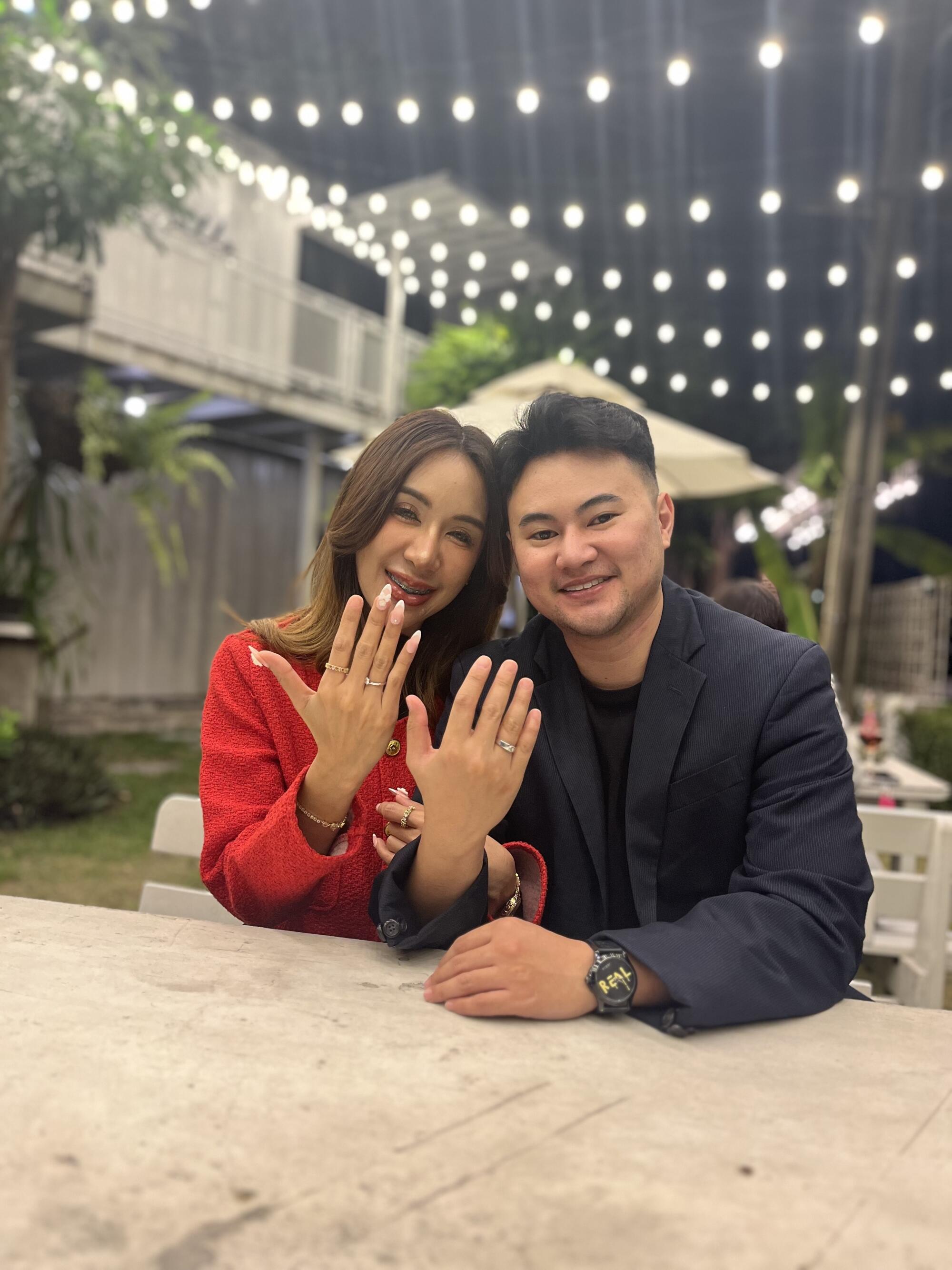
The government’s refusal to recognize him as female also meant that he could not marry his longtime girlfriend — until Thursday.
His father — who was upset when Thanomkhet came out as a lesbian in high school, and again when he started taking hormones for his transition — attended the wedding and said he was proud of his son.
Thanomkhet’s wife, 39-year-old Nathnicha Klinthaworn, who goes by Maple, said it took a while for her family to come around to accepting her sexuality and her partner.
“The movement has been fighting for 20 years,” she said. “This is the day.”
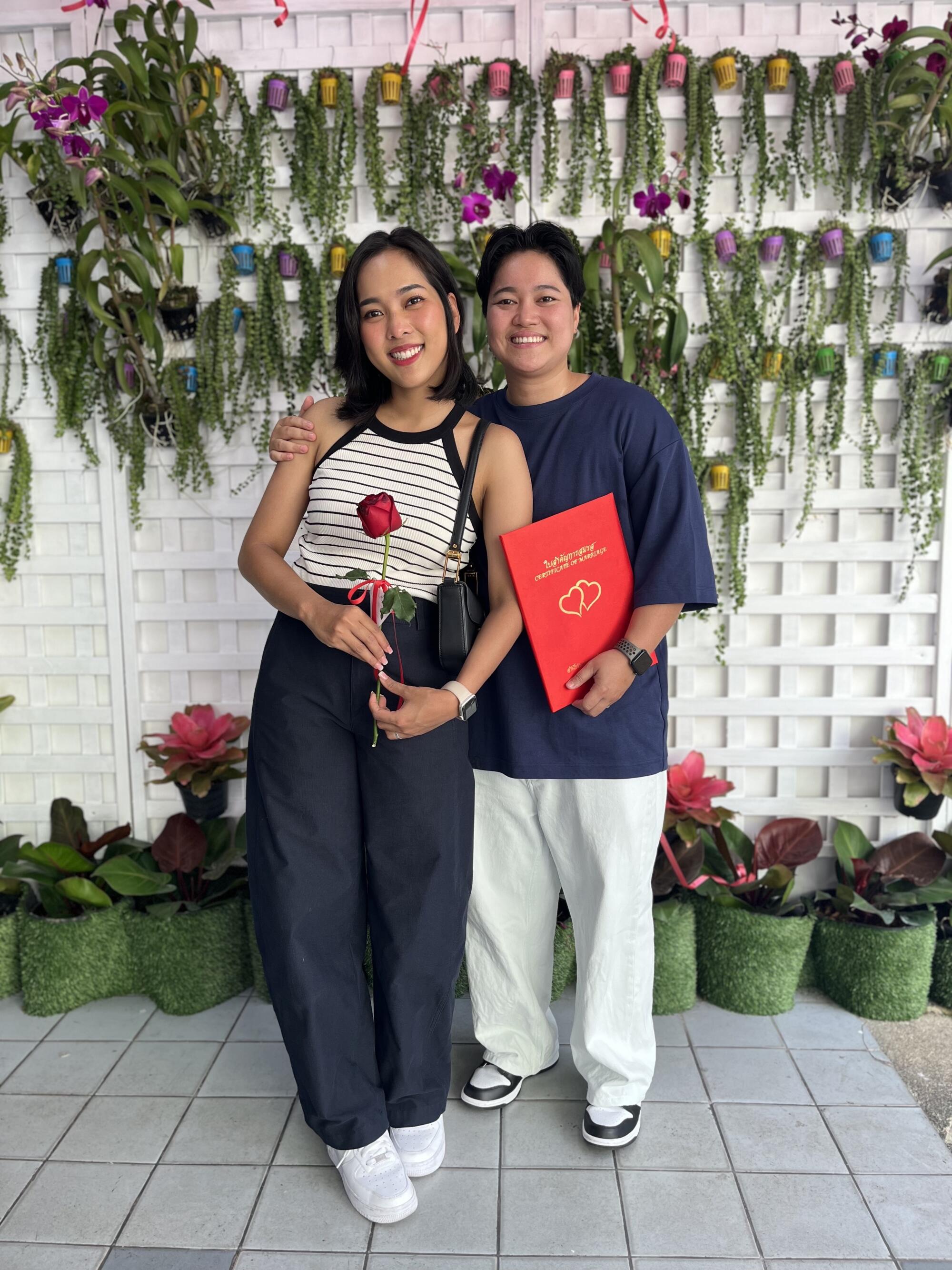
By the end of the day, at least 1,839 same-sex couples had registered their marriages around the country. The 654 in Bangkok set a new Guinness World Record for the most same-sex marriages in a day in one city, surpassing the old mark of 160 in Rio de Janeiro in 2013.
Outside the Bang Rak district office, Nitchakan, 30, explained that she had just adopted the last name of her partner, Mayuree Muangjareun, 28. The two met working in the hospitality industry.
“We have been together for a while,” Nitchakan said. “I want the law to protect us, because we don’t know what will happen in the future.”
For other couples, marriage is not an urgent issue.
Thirty years ago, when Pakodchakon Wongsupha, 68, started dating Kan Kerdmeemun, 73, there were no terms like LGBTQ+.
Chinese LGBTQ+ content creators have learned to navigate murky social media censorship and form queer communities online.
Family members questioned their closeness, but the women avoided discrimination by keeping to themselves, and paid little attention to advocacy.

But last year, the couple attended their first Pride parade, at the encouragement of some friends. There, they met younger couples fighting for marriage equality and began to join more community events.
“The world has changed so fast, and we have lived this long to see it,” Wongsupha said.
Other activists started to call them Grandma and Grandpa, pet names they’ve since adopted at home to replace traditional terms of endearment.
The couple celebrated with younger generations when the marriage equality bill was passed last year. Kerdmeemun cried when she heard the news.
But they are in no rush to get married themselves.
“It doesn’t matter anymore whether we organize a ceremony or anything,” Wongsupha said. “Staying together is enough.”
Special correspondent Wasu Vipoosanapat in Bangkok contributed to this report.
More to Read
Sign up for Essential California
The most important California stories and recommendations in your inbox every morning.
You may occasionally receive promotional content from the Los Angeles Times.


